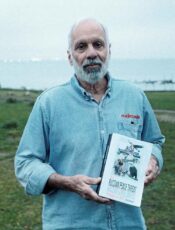The CIA's murderous covert operations to, as CIA officials suggested, "effect the removal of Schneider," were first revealed in a 1975 Senate report on Alleged Assassination Plots Involving Foreign Leaders. At the time, investigators for the special Senate committee led by Idaho Senator Frank Church were able to review the Top Secret CIA operational cables and memoranda relating to 'Operation FUBELT'the code name for CIA effort."
General Schneider was targeted for his defense of Chile's constitutional transfer of power.
As the commander-in-chief of the Chilean army, and the highest-ranking military officer in Chile, Schneider's policy of non-intervention created a major obstacle for CIA efforts to implement President Nixon's orders to foment a coup that would prevent the recently elected Socialist, Salvador Allende, from being inaugurated.
Brighter Future for Bolivia
Argentine's President Albert Ferna'ndez announced that he would be traveling to Bolivia for the inaugural ceremony. "It will be a dream fulfilled," he told national media.
Bolivian Senator Andrà �nico Rodrà guez stated that Evo Morales will return to his country from exile in Argentina, on November 9, the day after the inaugural ceremony. That will be one year exactly since he was forced into exile (November 10, 2019) by the military generals and some police.
Judge Jorge Quino, head of Departmental Court of Justice in La Paz, dismissed coup government charges of "terrorism" and "sedition" against Evo Morales. The October 26 decision is expected to be finally approved by the Plurinational Constitutional Court on the day of Arce's inauguration or the day following.
Bolivia's President-elect has joined growing calls for the resignation of Organization of American State's chief Luis Almagro. In an interview with "La Razon", a Bolivian newspaper, Arce said that Almagro must go for "ethical and moral reasons", because of the discredited 2019 OAS report that claimed there had been electoral fraud under the last Morales government.
Almagro is known for acting in favor of US interests. Arce said, "We do not agree that an important body be in the hands of people wearing the shirt of a political party or of a political ideology in the region. There should not be interference in the internal affairs of a country. If Almagro did that in Bolivia, imagine, he can do it with any other country, and we cannot allow that."
President Donald Trump stated that he expected to work with the new government. A State Department spokesperson, Michael Kozak, even stated that the Bolivian election had been "peaceful" "free and just". US American politicians are infamously known in Latin American (and elsewhere) for speaking with forked tongues.
Researcher-journalist Ramona Wadi, who covers Latin America, cau tioned about Bolivia's perilous future: "The electoral triumph may not spell the end of US intervention in the country. The US is known to have used diverse tactics to instigate violence and unrest in Latin America, biding its time until it strikes again. The military and the police have yet to completely prove their alliance to the new government and against US designs on Bolivia."
It is imperative that the new government reform the military and police, and find or train leaders who are loyal to their country's sovereignty and not to the interests of US world domination.
Notes:
- (1) Judge Garzà �n issued an order, April 18, 2002, to question Henry Kissinger, in London where he was to attend a conference. Garzon wanted to question him about his role in the Chilean coup, and the CIA-organized "Operation Condor", which killed and imprisoned tens of thousands of people in former military dictatorships in Brazil, Argentina, Chile, Paraguay and Uruguay to persecute and eliminate their opponents during the 1970s and 1980s.
Britain refused Garzon's request for permission to question Kissinger while he was in London. Kissinger, however, did not travel to Spain.
Garzon was also known for his pursuit of drug traffickers and terrorists in Spain and abroad. He best known for his arrest warrant for Pinochet, who was arrested on October 16, 1998, in London, for human rights abuses stemming the coup. Pinochet spent 16 months in London fighting extradition to Spain. He was allowed to return to Chile where a court ruled that he was mentally unfit to face trial.
Pinochet was not imprisoned while awaiting extradition in stark contrast to Julian Assange, who has rotted for 18 months in solidarity confinement in a maximum prison outside London. He is awaiting a British courts' decision to extradite him to the US under alleged violations of Espionage Act 1917.
(Note: You can view every article as one long page if you sign up as an Advocate Member, or higher).





